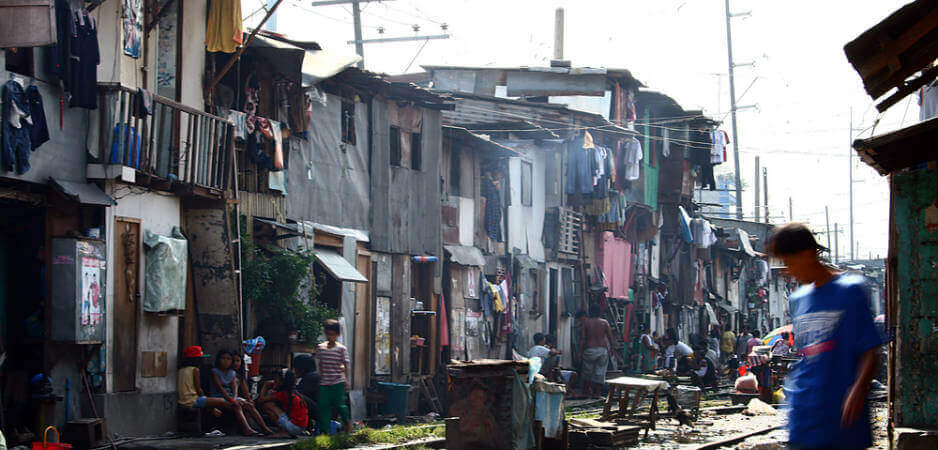In this edition of The Interview, Fair Observer talks to Philippine Senator Antonio Trillanes IV, leader of the opposition to President Rodrigo Duterte.
In June 2017, Senator Antonio Trillanes IV led a delegation that came to Europe to lodge a formal complaint with the International Criminal Court (ICC) in The Hague accusing the president of the Philippines, Rodrigo Duterte, of crimes against humanity. Since Duterte came to power in 2016, a brutal war on drugs has swept the country, claiming anywhere between 4,000 and 13,000 lives to date, many of them children; Trillanes estimates that the real number exceeds 20,000. In February 2018, the ICC launched a formal procedure of a preliminary examination that could eventually lead to the impeachment of Duterte. The Philippines announced that it would be open to an investigation into the war on drugs, provided it is not conducted by the UN’s special rapporteur on extrajudicial summary or arbitrary executions, Agnes Callamard.
Senator Trillanes is as optimistic today as he was last year in believing that Duterte’s popularity ratings, still above 70% or 80% depending on the pollster, will descend to the point at which the ICC will no longer fear upsetting the majority of Philippine citizens by prosecuting the case. Other observers are more pessimistic, given the ICC’s track record. The drama continues for the victims of Duterte’s campaign, and the suspense is likely to continue for the Philippine nation, ruled by a man who is proud to be thought of as a dictator and would prefer being shot by a firing squad than jailed.
In this edition of The Interview, Fair Observer talks to Senator Antonio Trillanes IV, leader of the opposition to President Duterte, about the war on drugs, the ICC case and the Philippines’ pivot to China.
Peter Isackson: The ICC has announced its intention to mount a preliminary examination following the complaint you lodged in 2017. What outcome do you expect that to produce?
Antonio Trillanes: The announcement of the procedure of a preliminary examination is a very significant development because we see this as a validation of the allegations we made against Mr. Duterte. The ICC has been known to be very meticulous in processing communications sent to them, so this official first step of a preliminary examination is a way of saying that they have validated the information and the evidence that we have presented to them.
Isackson: What about Agnes Callamard, the UN’s special rapporteur on extrajudicial executions? Would she be intervening on behalf of the ICC or the UN?
Trillanes: That’s an entirely different entity altogether. They are mutually exclusive of each other. But that’s another front wherein we can pursue the ends of justice as regards the initial case.
Isackson: Is the intervention of an expert like Callamard a necessary step in the pursuit of your aim of impeachment?
Trillanes: No necessarily, because Agnes Callamard represents the UN Human Rights Commission, and they’re more into applying additional international pressure on Duterte’s administration. As for the ICC, they would have their own investigative team. Now they may opt to utilize the findings of the Human Rights Commission, but after that they will have other means to validate the evidence on the ground. As for our own engagement process, we have other means of collecting and presenting evidence later on.
Isackson: How long do you think this process will take before you get concrete results from the ICC?
Trillanes: The way that I understand the ICC process, after the preliminary examination phase that would focus more on the jurisdictional issues and other open-source documents and evidence, they would shift the investigation phase so they can actually request the issuing of an arrest warrant from the pre-trial chamber of the ICC. Even at that point we can have Mr. Duterte arrested through our state agents. That would come as early as six months after the commencement of the preliminary examination phase.
Isackson: Are the agents who would arrest Duterte local or international?
Trillanes: Based on the ICC documents, it would be state agents, or the Philippine law enforcement in this case, who will enforce any one of the orders issued by the ICC.
Isackson: We have read that Duterte is ready to welcome a preliminary examination. Is that true? Is he going to block it or encourage it?
Trillanes: What Duterte says is not exactly what he means. So based on the actuations of the different agencies of the executive branch of the Duterte administration, they have been stonewalling any requests or any scrutiny of the records concerning the extrajudicial killings. The Philippine Supreme Court, for example, has requested documents related to the police reports about the deaths resulting from police oppression because it claims this is a matter of national security and, therefore, cannot be submitted to the courts. The Philippine Senate (also during our investigation) has requested the same documents, but the Philippine national police and the other government agencies have been declining our requests.
Isackson: What about the role of the Catholic Church? Has it taken a clear position? What will its influence be?
Trillanes: The position of the Catholic Church is strongly against the extrajudicial killings, and it has been openly calling for its brethren to be vigilant and to protest the killings that have been happening around the country. It have been doing this using different platforms, whether inside the Church or outside. They have been conducting mass action and rallies about the same subject.
Isackson: Is that having an effect on popular opinion? It appears that as recently as December, Duterte’s approval ratings were at 71%.
Trillanes: Well, yes, it has a very strong effect, not only among the general population, but within the institutions, this pushback coming not only from the Catholic Church but from other civil society organizations, the members of the opposition, the international community. The national media have forced opinion back on this murderous way, which he called his war on drugs. The 71% rating, or 81% that he has is much lower than from where he came from, which was around 90% during the start of Duterte’s administration. That was last December. I believe that the next quarter survey will be more telling. So once his numbers continue to dip, then we would have a consistent downward trajectory which we would be able to project for the next quarter and beyond.
Isackson: What lessons, if any, can you draw from the public outrage at the police killing of 17-year-old Kian delos Santos?
Trillanes: It is a landmark case that changed the narrative from a tolerant Philippine society that has been looking the other way as regards the killings. But when the killing of Kian delos Santos was disseminated nationwide, and the people saw in graphic detail how the policemen actually conducted the killing, it changed the perception about the war on drugs. That forced the Duterte administration to step back and change its tactics.
Isackson: To what extent do Donald Trump’s statements about the war on drugs complicate the solution to Duterte’s reign of terror? How is Trump’s position seen in the Philippines?
Trillanes: Since that report came from an article that has yet to be read widely by the public, it hasn’t created that much impact in terms of perception. But what we saw when Mr. Trump was here last November was that he did not endorse Duterte in any manner at all, and that’s what we are holding on to. That’s more important to us than any recent article about what Mr. Trump supposedly said.
Such a statement, if ever that was made at all, was answered by the security threat assessment of the international community of the United States. It is mentioned that Duterte in particular is a threat to democracy. So that has greater impact than the statement he purportedly made Mr. Trump.
Isackson: How much of a concern is Duterte’s pivot to China?
Trillanes: Since day one, the Duterte administration has been conditioning people that we are turning away from our Western allies and toward China and Russia. He has spent a significant political capital in that regard, basically softening the hearts and minds of the Filipino people as regards this pivot in foreign policy. But what we expect to be a declining popularity of Mr. Duterte, I believe the resentment, or the undercurrent of resentment, against this pivot will again resurface, and it will be one of the causes of the further decline of Mr. Duterte’s approval rating.
Isackson: Can I interpret what you’re saying as meaning that you absolutely need to see a decline in his approval ratings if impeachment can be carried out?
Trillanes: Yes, impeachment and other mechanisms to rectify the damage that Mr. Duterte has been causing. I believe that the decline of the approval rating of Mr. Duterte is also material to any move that would be made by the ICC.
Isackson: Duterte says he wants to leave office early because he is old and tired. Do you see this as a consequence of the procedure you have engaged with the ICC and the fact that a preliminary examination has been launched, or is he saying it to counter the impression that his initiative to change the constitution is a sign that he wishes to cling to power?
Trillanes: More of the latter. He wants to deceive and trick the legislators and the people into changing the constitution so he could hold on to power beyond his term.
The views expressed in this article are the author’s own and do not necessarily reflect Fair Observer’s editorial policy.
Photo Credit: shadow216 / Shutterstock.com
Support Fair Observer
We rely on your support for our independence, diversity and quality.
For more than 10 years, Fair Observer has been free, fair and independent. No billionaire owns us, no advertisers control us. We are a reader-supported nonprofit. Unlike many other publications, we keep our content free for readers regardless of where they live or whether they can afford to pay. We have no paywalls and no ads.
In the post-truth era of fake news, echo chambers and filter bubbles, we publish a plurality of perspectives from around the world. Anyone can publish with us, but everyone goes through a rigorous editorial process. So, you get fact-checked, well-reasoned content instead of noise.
We publish 2,500+ voices from 90+ countries. We also conduct education and training programs
on subjects ranging from digital media and journalism to writing and critical thinking. This
doesn’t come cheap. Servers, editors, trainers and web developers cost
money.
Please consider supporting us on a regular basis as a recurring donor or a
sustaining member.
Will you support FO’s journalism?
We rely on your support for our independence, diversity and quality.







